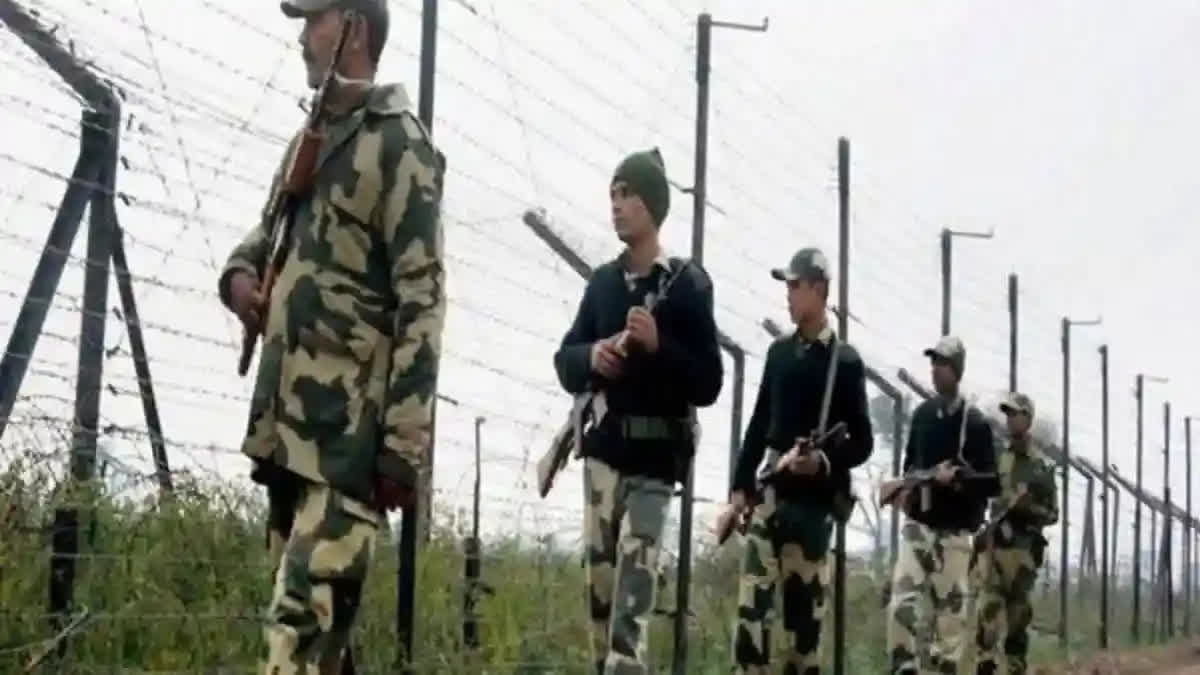New Delhi: Immediately after Union Home Minister Amit Shah announced scrapping the Free Movement Regime (FMR) along the India-Myanmar border, a tribal body from Manipur, Zo United vehemently opposed the move saying that the decision would go against the sentiment of the tribals living in three Northeastern States, including Manipur, Mizoram and Nagaland.
Zo United has also threatened to approach the Supreme Court (SC) against the decision of scrapping and suspending the FMR. “There are avenues we can approach. We will approach the Supreme Court against the Centre's decision to scrap and suspend the FMR,” said a senior member of the Tribal Body and spokesperson of the Indigenous Tribal Leaders’ Forum (ITLF) Ginza Vualzong while speaking to ETV Bharat.
Announcing the decision, Amit Shah said that the scrapping of the FMR will ensure the internal security of the country. He said that it’s Prime Minister Narendra Modi’s resolve to secure the border. “The Ministry of Home Affairs (MHA) has decided to scrap the Free Movement Regime (FMR) between India and Myanmar to ensure the internal security of the country and to maintain the demographic structure of India’s northeastern states bordering Myanmar. Since the Ministry of External Affairs (MEA) is currently in the process of scrapping it, the MHA has recommended the immediate suspension of the FMR,” Amit Shah said on ‘X’ (formerly known as Twitter).
Amit Shah has recently said that the entire stretch of the 1,643-km-long Indo-Myanmar border will be fenced for building impenetrable borders. Started in 2018 as part of India's Act East policy, the FMR allows people residing close to the India-Myanmar border to venture 16 km into each other's territory without any documents. The India-Myanmar border passes through Mizoram, Manipur, Nagaland and Arunachal Pradesh.
Fencing along the border has been a persistent demand of the Imphal Valley-based Meitei groups, which have been alleging that tribal militants often enter India through the porous border. The Meitei Groups also allege that narcotics are being smuggled into India taking advantage of the unfenced international border.
Reacting over the Home Ministry’s decision to scrap FMR, Manipur Chief Minister N Biren Singh said that is crucial for our internal security and the demographic integrity of our North Eastern States. “Immensely grateful to Prime Minister Narendra Modi and Home Minister Amit Shah for their commitment to securing our borders. The decision to scrap the Free Movement Regime (FMR) between India and Myanmar, as recommended by the Home Ministry, is crucial for our internal security and the demographic integrity of our North Eastern States,” said Singh.
This is yet another historic decision in curbing illegal immigration and strengthening our internal security after the recent announcement to fence the 1,643 km Indo-Myanmar border by the Government of India, said Singh. Meanwhile, the Zo United reiterated their demand for a separate administration or a Union Territory (UT) with a legislature for the Zomi community of the State, including Kuki-Zomi-Hmar.
“There is a total breakdown of the law and order situation. The State machinery is working for a particular community (Meiteis). Manipur is now ruled by Arambai Tangol,” said Ginza. Arambai Tenggol is a Meitei Organisation and is often described as a radical organisation. "Along with state forces, members of Arambai Tenggol, were involved in attacking our community," said Ginza.
- " class="align-text-top noRightClick twitterSection" data="">
Read more: NSCN-IM Opposes Centre's Strategy To End Free Movement Regime


